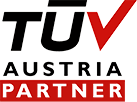
ISO 37001 Anti-corruption Management Systems
Send requestIt is estimated that more than $1.5 trillion in bribes change hands worldwide every year. In addition to its negative economic impact, bribery also affects society as a whole because it undermines trust, leads to injustice, creates inequality and stifles motivation. ISO has joined the global fight against bribery by developing ISO 37001, an international standard that establishes requirements for an Anti-Bribery Management System (ABMS).
What is ISO 37001?

Published in 2016 as a Management System Type A (MSS) standard, ISO 37001 defines the requirements and provides guidance for establishing, implementing, monitoring, maintaining, and continually improving an ABMS.
An ABMS based on ISO 37001 is designed to help organizations effectively prevent, detect and respond to bribery. Other forms of corruption, such as fraud, are not covered by the standard. The requirements of the standard are generic and applicable to all organizations, regardless of their type, size and sector (public, private or non-profit). In addition, ISO 37001 can be used to combat bribery by or on the part of an organization, as well as direct and indirect bribery. ISO 37001 follows the High Level Structure (HLS) and shares common terminology with other management system standards developed by ISO. This means that an ABMS can be set up as a stand-alone management system, be part of an overall compliance management system based on ISO 37301 or be integrated with other management systems based on standards such as ISO 37002 , ISO 9001 and ISO 45001.
ISO 37001 Benefits for organizations
Implementing an ABMS based on ISO 37001 can be a good strategic decision that demonstrates an organization’s commitment to effectively preventing, detecting and responding to bribery. Organizations seeking an effective ABMS will need to demonstrate their commitment to bribery prevention by developing policies, procedures, and controls that help reduce bribery risks. However, the requirements of ISO 37001 are generic; therefore, organizations will have ample freedom to design the ABMS that best meets their needs.
Some of the benefits that organizations would gain from implementing an ABMS based on ISO 37001 include:
- Improved ability to detect, prevent, and respond to bribery committed by the organization or entity.
- The ability to certify an ABMS by undergoing a conformity assessment by an accredited conformity accredited body.
- Establishing processes to enable due diligence of prospective personnel and business partners
- Ability to contribute to the global fight against bribery
- Ability to shape, improve or transform the culture of the organization
- Improved ability to respond, mitigate and remediate when bribery occurs.
In some jurisdictions, having an internal mechanism to address bribery issues can reduce penalties in cases of wrongdoing.



